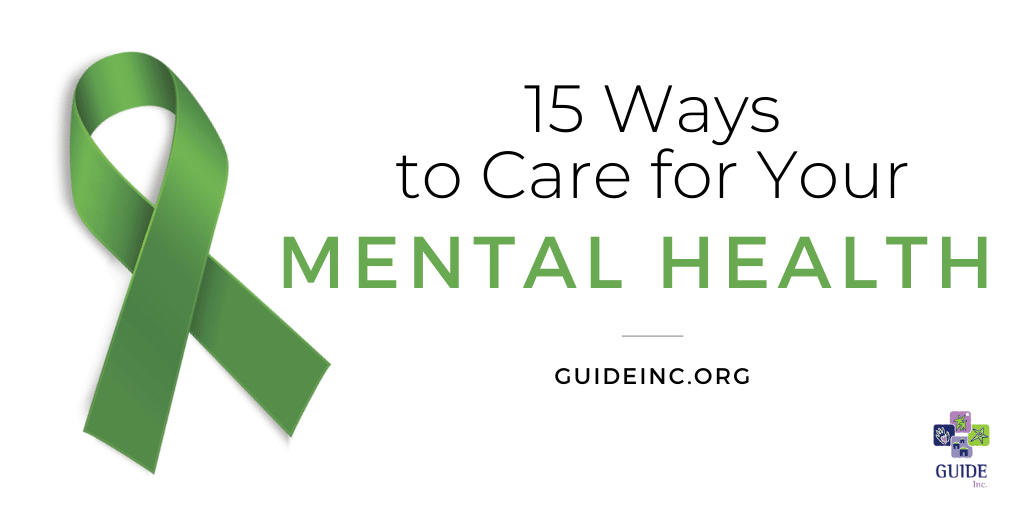When people think about making healthy changes, most think about making changes to their physical well-being, like losing weight or exercising more. What about taking steps to improve your mental well-being? Mental health includes emotional, psychological and social well-being and affects many aspects of your overall health. Below are 15 practical ways to care for your mental health. Pick a few and give them a try!

- Practice gratitude. Acknowledge the bright side by keeping a journal where you can write down something you’re grateful for every day.
- Connect with friends and family. Good relationships are important to your mental health. Make time to text, call or video chat with the people you care about.
- Go outside. Try to get at least 30 minutes of sunlight (Vitamin D) each day to improve your mood and increase energy.
- Meditate. Set aside a few minutes each day to center yourself, focus on your breathing and relax. Look for an app or online tutorial that offers guidance if desired.
- Get a good night’s sleep. Try going to bed earlier and setting a consistent sleep schedule. Adequate sleep can help alleviate symptoms of anxiety and depression.
- Improve your physical wellness. Focus on your nutrition, and try to exercise at least a few times per week. When your body feels good, it can really boost your mood.
- Try out different ways of coping with stress. Find something that works for you, such as going for a walk, yoga, deep breathing, listening to music, etc.
- Do something kind. Making someone else happy will make you feel happy, too. Send an encouraging text, mail a note or smile at a passing neighbor.
- Make time for yourself. Set aside time each day to be alone and reset.
- Do something you enjoy. Practice a hobby, watch a TV show you like, read a book, etc. Prioritizing things you enjoy will make you happier.
- Do a digital detox. Dedicate some time to be screen-free. If you find yourself feeling overwhelmed after being on social media, consider testing a period of time where you avoid it.
- Take time to laugh. Connect with someone who has a good sense of humor, or watch funny videos online. Laughter can take your mind off the things weighing you down.
- Set a routine. Sticking to a set schedule when it comes to resting, self-care, work, caring for others, etc. will maximize efficiency and increase feelings of stability and security.
- Avoid alcohol and other drugs. Don’t rely on these substances to help you cope. Alcohol and drugs actually increase stress and make it harder to concentrate and control your emotions.
- Get help when you need it. Reach out to your doctor or therapist when you need support. Having a trained professional to talk to can help you manage symptoms, reframe negative thoughts and determine appropriate coping strategies.
